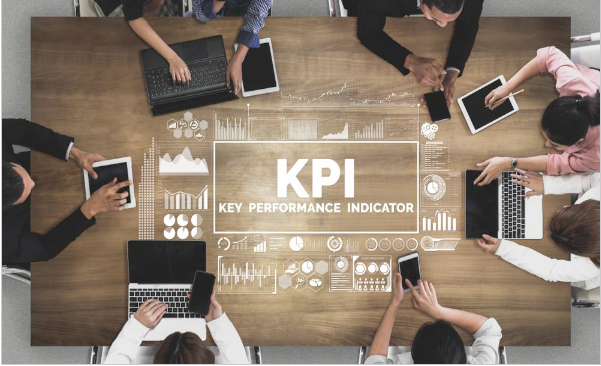4 key performance indicators for packaging and label issues

Every business has essential KPIs (key performance indicators) that help them to record and track how well their business is doing. Every industry has different KPIs that they should focus on as each business is unique and features many different moving parts. However, sometimes businesses can get caught up in tracking too many KPIs, which can actually take away from the most important elements. If you’re in the supply chain industry, you should be using high-quality shipping supplies and tracking the success of your products to ensure that your business is performing well. Here are some major KPIs you should focus on.
What Is a KPI?
KPI stands for key performance indicators and is important to measure your business’s success. These calculated figures are either used to evaluate whether or not you are achieving a specific business goal, or to decide if your products are meeting specific standards. For example, supply chain companies have a responsibility to get their products to customers in a timely fashion and every product needs to be in great condition as these clients will be using your shipping items to send their own products to consumers. Tracking the KPIs can help you recognize whether or not you are meeting your standards and fulfilling your goals. It can also illuminate areas where your company may be struggling and allow you to revisit your strategy and enhance company performance.
Why Are KPIs important?
KPIs are extremely
important to every business because each one is a different
measurement of how well you’re performing. Without KPIs, it’s
more difficult to track figures like ROI. You should be able to
easily record and review how much you’re spending to make products
and, in turn, how much money you’re making. If these margins are
too low, you can readjust your pricing or look for cheaper supplies
to help grow your net profits. When it comes to supply chain
companies, there are a number of industry-specific KPIs that you
should be aware of.
Important Supply Chain KPIs

Return on
Investment (ROI)
ROI is one of the most common KPIs for any kind of business. This measurement reveals how much money you’re making on each item that you’ve invested in. When you record your ROI, you can review the numbers and analyze whether or not you’re spending too much on your investments. If you’re not making much money back, you may want to consider looking for a new supplier. To calculate your ROI, you can simply follow this formula:
(Current value of investment – cost of investment) / cost of investment
Inventory Turnover Rate (ITR)
This KPI is important for supply chain companies as it measures how many times your business is able to sell (or turnover) your entire inventory each year. Because this KPI is an annual statistic, it may take some time to notice trends, but it will give you a good sense of how quickly you’re moving your products. If you find that you weren’t able to completely turnover your inventory even once throughout the year, you may want to consider ordering less inventory in the future. This can help you cut costs and, hopefully, make more money in the long run.
The formula for this KPI is:
(Total sales – cost of sales) / remaining end of year inventory
On-Time Shipping Rate
For supply chain companies, timeliness is a huge factor. If your customers are consistently receiving their orders late, they will be less inclined to trust your brand. Because your customers rely on you to provide them with high-quality products in a timely fashion, it’s extremely important that your orders ship and deliver on time. If your products consistently arrive late, it’s unlikely you’ll maintain loyal customers. On-time shipping rate, as the name suggests, gives you the percentage of time that your orders have arrived on time and can be calculated with this formula:
(number of items delivered on time / total items) * 100
You can find this value on a monthly, quarterly or even annual basis.
Days of Supply (DOS)
One of the most essential KPIs to track as a supply chain company, DOS can give business owners a lot of insight into their company’s inventory management. This measurement helps you to understand how long your inventory supply is going to last as forecasted by your sales records. Finding this number can help you understand your chances of running out of stock and predict how much inventory you’ll need for the future. With this information, you can properly gauge the number of supplies you can keep on hand without running out or spending too much on warehousing if you overstock. Use this formula to find your DOS:
(Average monetary value of inventory on hand / monthly demand) * 30
Other Important Factors for Supply Chain Companies

Environmental Packaging
Although not a KPI, it is important to consider how much money you’re spending on your packaging supplies and considering how this may be impacting the environment. As a supply chain company, you’re using packaging materials every time you ship a product and this can greatly affect the environment. Consider buying from a company that offers eco-friendly packaging to make your company more green and, oftentimes, lower your costs. This can help your KPIs as lower-cost products have the potential to net great profits–particularly if the overall quality is also improved. Many people are more eco-conscious now than in the past, and buying from a company that also values environmental efforts can sometimes attract new customers.
Stay on Top of Your KPIs
KPIs are vital to understanding your business. Staying on top of these numbers is the best way to measure your success and re-adjust your business and marketing strategies to increase profits, lower overhead and ensure that every single one of your customers is getting a great experience. As a supply chain company, it’s important that you streamline your packaging operations to maximize profits and keep your process running as smoothly as possible. Use the information gathered from tracking these essential KPIs to help grow your business to its full potential.
About the Author:

Cory Levins serves as the Director of Business Development for Air Sea Containers. Cory oversees the development and implementation of ASC’s internal and external marketing program, driving revenue and profits from the Miami FL headquarters.





